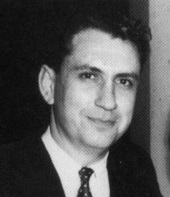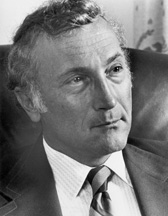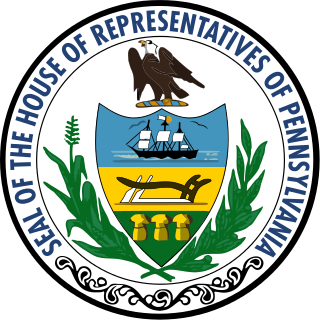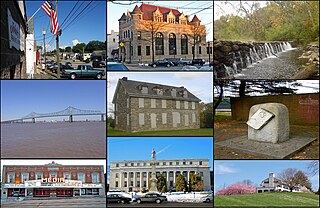
The 1986 United States Senate elections was an election for the United States Senate in the middle of Ronald Reagan's second presidential term. The Republicans had to defend an unusually large number of freshman Senate incumbents who had been elected on President Ronald Reagan's coattails in 1980. Democrats won a net of eight seats, defeating seven freshman incumbents and regaining control of the Senate for the first time since January 1981. The party not controlling the presidency gained seats, as usually occurs in mid-term elections.

The 1980 United States Senate elections coincided with Ronald Reagan's victory in the presidential election. Reagan's large margin of victory over incumbent Jimmy Carter pulled in many Democratic voters and gave a huge boost to Republican Senate candidates.

The 1974 United States Senate elections were held in the wake of the Watergate scandal, Richard M. Nixon's resignation from the presidency, and Gerald Ford's subsequent pardon of Nixon. Economic issues, specifically inflation and stagnation, were also a factor that contributed to Republican losses. Democrats made a net gain of three seats from the Republicans. Following the 1974 elections, the Democratic caucus controlled 60 seats and the Republican caucus controlled 39 seats.

William Joseph Green III is an American politician from Pennsylvania. A Democrat, Green served in the U.S. House of Representatives from 1964 to 1977 and as the 94th Mayor of Philadelphia from 1980 to 1984.

Marjorie Margolies is a fellow at the University of Pennsylvania Fels Institute of Government, an adjunct faculty member at the University of Pennsylvania, and a women's rights activist. She is a former journalist and a Democratic politician. From 1993 to 1995, she was a member of the U.S. House of Representatives, representing Pennsylvania's 13th congressional district.
David Weese Marston, Sr., known as Dave Marston, is a Philadelphia lawyer and author. He served as United States Attorney for the United States District Court for the Eastern District of Pennsylvania under U.S. President Gerald R. Ford, Jr., and later ran unsuccessfully for Governor of Pennsylvania and Mayor of Philadelphia.

The 2010 United States Senate election in Pennsylvania took place on November 2, 2010, during the 2010 midterm elections. Incumbent Republican-turned-Democrat U.S. Senator Arlen Specter ran for reelection to a sixth term, but lost in the Democratic primary to Joe Sestak. Republican nominee Pat Toomey then won the seat.

Stewart John Greenleaf, Sr. is a Republican former member of the Pennsylvania State Senate who represented the 12th District from 1979 to 2019. His district included portions of eastern Montgomery County and southern Bucks County.

The 2004 United States Senate election in Pennsylvania was held on November 2, 2004. Incumbent Republican U.S. Senator Arlen Specter won re-election to a fifth term.

Electoral history of Arlen Specter, former United States Senator from Pennsylvania (1981–2011), Chairman of the Senate Committees on Intelligence (1995–1997), Veterans' Affairs and Judiciary (2005–2007), as well as a candidate for the 1996 Republican presidential nomination.

The 1998 United States Senate election in Pennsylvania was held November 3, 1998. Incumbent Republican U.S. Senator Arlen Specter won re-election to a fourth term.

The Pennsylvania gubernatorial election of 1978 was held on November 7, 1978 between Republican Dick Thornburgh and Democrat Pete Flaherty.

The 1992 United States Senate election in Pennsylvania was held on November 3, 1992. Incumbent Republican U.S. Senator Arlen Specter won re-election to a third term.

The 1986 United States Senate election in Pennsylvania was held on November 4, 1986. Incumbent Republican U.S. Senator Arlen Specter won re-election to a second term.

The 1976 United States Senate election in Pennsylvania was held on November 2, 1976. Incumbent Republican U.S. Senator and Minority Leader Hugh Scott decided to retire. Republican John Heinz won the open seat.

The 1974 United States Senate election in Pennsylvania was held on November 5, 1974. Incumbent Republican U.S. Senator Richard Schweiker won re-election, defeating Democratic nominee Peter F. Flaherty.


























